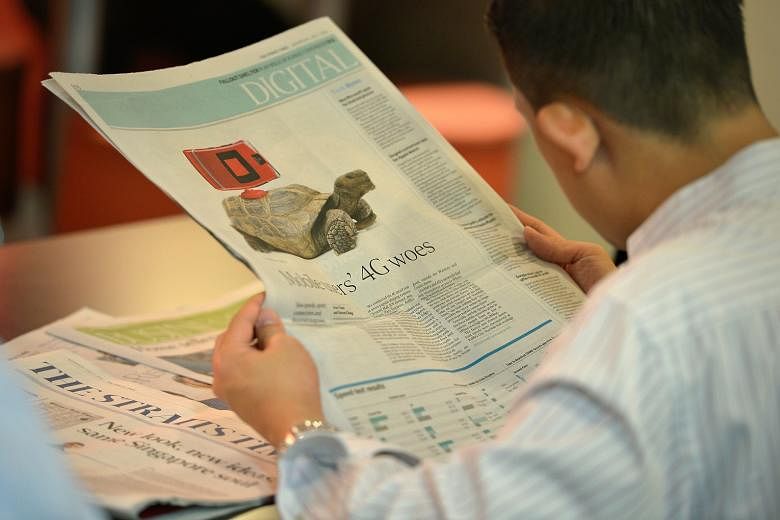SINGAPORE - Even as governments around the world ponder over legislation to counter the scourge of fake news, crucial steps to educate the public and to build up trust in the country's media and its leaders must also be taken, a law don said on Monday.
Singapore Management University Associate Professor of Law Eugene Tan said: "It's important that regulation must not weaken the ability of any society to be able to discern for themselves. Governments cannot do the thinking for the people."
With the phenomenon of fake news here to stay as technology makes easier than ever the spread of unverified information, society must be taught how to react to attempts at misinformation, said panellists at at a forum titled "Keep it Real: Truth and Trust in the Media".
The two-day event is jointly organised by The Straits Times and the World Association of Newspapers and News Publishers.
Assoc Prof Tan was speaking on a panel about truth and trust in the digital age, moderated by ST editor Warren Fernandez.
Prof Tan said: "Governments always believe in their ability to do wonders... but we should bear in mind that there are inherent limits to what they can do when it comes to fake news."
The two other panellists - Ms Maria A. Ressa, the chief executive officer of Manila-based online news site Rapler, and Mr Jason Subler, a Singapore-based managing editor at Reuters - also stressed that the governments cannot fight the problem of fake news alone.
The panellists said equipping the public with media literacy skills must be a key strategy.
Another tactic is to strengthen confidence in the media, they added.
Plummeting trust in the traditional media has sent people searching for news on alternative platforms - some of which carry information that are untrue or erroneous.
Mr Subler cited Reuter's Backstory initiative, which gives readers a glimpse at how stories are produced through interviews with journalists or explanations on how the news agency reports on certain issues.
Efforts such as these, he added, may help readers discern which news organisations are more trustworthy.
The panellists also called for social media companies to play their part.
Ms Rees cited Facebook as the player with the most power to crack down on the spread of fake news in the Philippines.
"Journalists are no longer gatekeepers. The intermediaries are, the platforms are. And if you don't want to get legislated, you need to act faster," she urged them.


